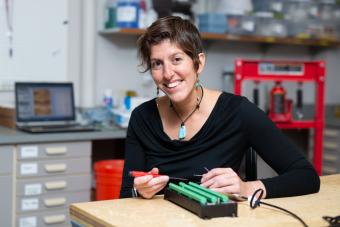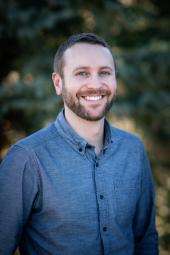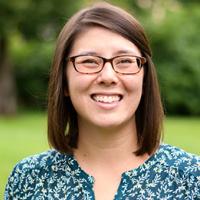Mines researchers aim to bring more science into decision-making through AGU Local Science Partners

Kamini Singha, professor of geology and geological engineering, is one of two Mines researchers chosen for the inaugural cohort of AGU's Local Science Partners program.
A Colorado School of Mines professor and postdoctoral researcher are members of the inaugural cohort of a new American Geophysics Union program to empower scientists to build sustainable partnerships with policymakers.

Kamini Singha, professor in the Geology and Geological Engineering Department and associate dean of Earth and Society Programs, and Joel Singley, a postdoc in Singha’s research group, were among the 55 AGU members selected as inaugural AGU Local Science Partners ambassadors.
Through the program, the science ambassadors receive resources and training on the legislative process, science policy and communication skills, as well as regular legislative and policy updates and opportunities to participate in Congressional visit days in Washington D.C.
“This is a great way to think about how to translate our research into impact,” Singha said. “We all do science, but for so many of us, we don’t have the connection to making change with that science.”
The ambassadors come from a wide range of disciplines, from biologists to geologists to oceanographers, and professional backgrounds, from early-career scientists to emeritus professors, from academia and the private sector.
Each ambassador is also paired with a legislator from their home state or district. Singha has been assigned U.S. Sen. John Hickenlooper – a Democrat and fellow geologist – while Singley has been paired with U.S. Rep. Ken Buck, a Republican represents Colorado’s 4th Congressional District.
“Regardless of the scientist part, I'm still a constituent,” said Singley, who lives in Weld County, which is part of Colorado’s 4th District. “The constituent part gets me in the door and the scientist is informing the ask.”
Singley’s doctoral work focused on water quality and nutrient cycling in streams in Antarctica. Before he went to grad school, he also spent five years working as a middle school teacher.
“As an AGU Local Science Partner, I get to think about what it means to be an advocate for science writ large,” Singley said. “It doesn’t have to be that I'm personally doing these massively important studies that are directly related to policy – it's about being a scientist who thinks in a policy-relevant way.”
A big part of that advocacy, Singha and Singley agreed, is ensuring continued funding for science on all levels.
“We need to make sure there is funding for the kind of work that we do, supporting the next generation of scientists and engineers and diversifying the sciences,” said Singha, whose research focuses on hydrogeology and environmental geophysics. “It's about the science, but it’s also about the people and making sure we continue to have people working on these problems.”




